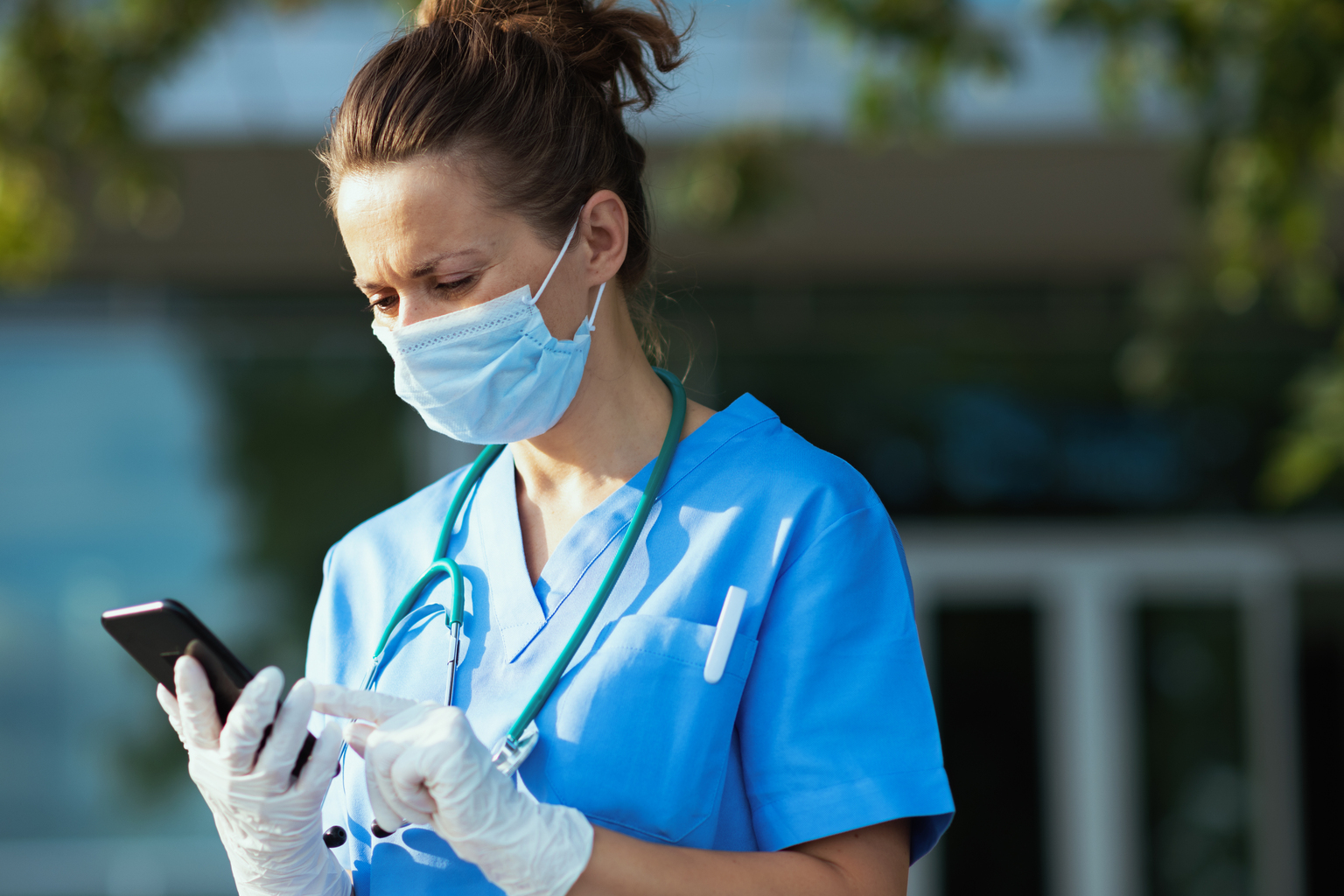On July 15, 2021, the U.S. Surgeon General issued an urgent plea for all Americans to take part in slowing a serious threat to public health. He wasn’t talking about the COVID-19 pandemic but rather the harmful effects on personal and public health caused by the infodemic – the creation and spread of an excessive amount of unreliable and false health information.
An article from the University of Pennsylvania School of Nursing (Penn Nursing) just published online in the American Nurse Journal explains how misinformation was accelerated during the pandemic and how social media platforms (SMPs) amplified the problem. The article “Preventing the Spread of Misinformation – A Role for All Nurses” shares the critical role nurses play in reducing health misinformation harm and helping patients, families, and communities access credible, trusted sources. It also further elaborates on how nurses can identify credible information when interacting with SMPs.


“Nurses and consumers must develop skills to evaluate information critically,” says article lead author Antonia M. Villarruel, PhD, RN, FAAN, Professor and Margaret Bond Simon Dean of Nursing at Penn Nursing. “A study examining the impact of trust in science found that people with high trust in science were more likely to believe and disseminate misinformation about COVID-19 and genetically modified organisms in the presence of a scientific reference compared to false claims without scientific references. These findings underscore the importance of critically evaluating information, even from trusted sources.”
“Misinformation has accelerated during the pandemic, resulting in what the World Health Organization (WHO) calls an infodemic. The effects include confusion and support for behaviors that can harm health, lead to mistrust in science, and ultimately undermine the public health response to the pandemic,” says Richard James, MSLIS, nursing liaison librarian at Penn Nursing and coauthor of the article.
The article is based on a perspectives paper Villarruel coauthored for the National Academy of Medicine titled “Identifying Credible Sources of Health Information in Social Media: Principles and Attributes.” It also uses research from Dolores Albarracín, PhD, Alexandra Heyman Nash Penn Integrates
Knowledge University Professor. Her research was published in an article titled “Misplaced Trust: When Trust in Science Fosters Belief in Pseudoscience and the Benefits of Critical Evaluation” in the Journal of Experimental Social Psychology.
Prioritizing Science Communication and Public Engagement
Patients and families trust nurses to identify, recommend, and affirm credible sources of information. Nurses must ensure that patients have access to credible information, which can be defined simply as that which is consistent with the best scientific evidence available at the time.
To combat misinformation, nurses need to create an environment of trust by demonstrating empathy and curiosity, which encourages patients and families to share concerns and ask questions. The article recommends these steps:
- Proactively engage with patients and the public about health information. Acknowledge how difficult it is to know what information is trustworthy. Ask patients where they get their information and why they trust that source. Provide alternate and accurate sources of information. When correcting misinformation, be non-judgmental.
- Use technology and media platforms to share accurate health information with the public. Provide broadly accessible information via various platforms. Consider when and how you can best use your voice to promote credible, evidence-based health information.
- Partner with community groups and local organizations to prevent and address health misinformation. Use opportunities to partner with your community faith organizations, school, work, and social circles to provide and clarify information about COVID-19. Use and share the national and local resources available from the NIH Community Engagement Alliance at covid19community.nih.gov.
COVID-19 has demonstrated the need to prioritize science communication and public engagement at every level of society. Nurses understand that facilitating education and public access to health information provides pre-exposure prophylaxis against misinformation.
“As we all know, prevention is better than cure. Treating people for the harms of the infodemic is both difficult and uncertain, but nurses have access to a wealth of tools, principles, and approaches for ensuring that patients and communities receive evidence-based, up-to-date, and credible health information,” says Villarruel. “The COVID-19 pandemic and related infodemic are calling us all to act in our professional and personal lives. How will you answer the call?”


